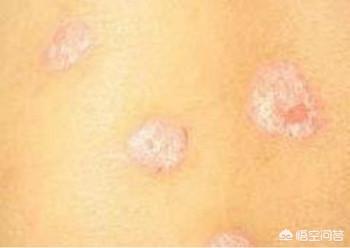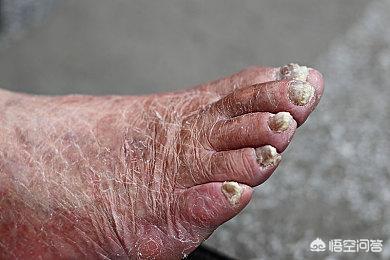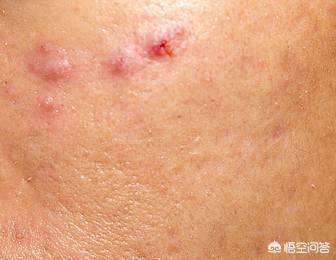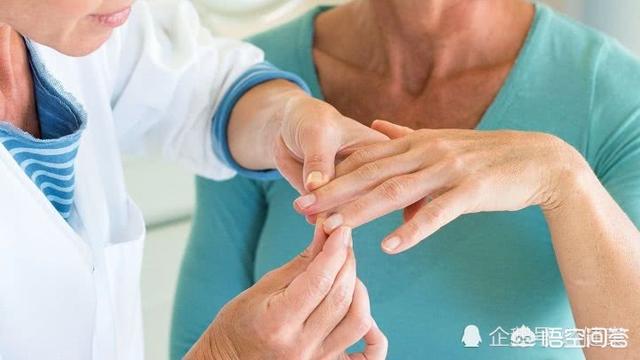What causes psoriasis?
Psoriasis, called psoriasis in the motherland medicine, is a common chronic skin disease that used to be considered primarily a transitional proliferative disorder, but is now known to be a complex immune-mediated disease in which T lymphocytes and dendritic cells play a major role.
The causes of morbidity are broadly categorized into two types: genetic and environmental factors.
1. Genetic factors: It has been known in the past that psoriasis runs in families. It is mainly reflected in the following three aspects;
(1) About 40% of people with psoriatic arthritis or psoriasis have a family history of first-degree relatives with these diseases.
(2) Genome-wide association studies have identified multiple susceptibility loci for psoriasis, many of which contain genes involved in immune system regulation. The psoriasis susceptibility locus in the major histocompatibility complex (MHC), where the human leukocyte antigen genes are located, is thought to be a major genetic determinant of psoriasis.
(3) Psoriasis tends to be more consistent in monozygotic twins than in heterozygotic twins.
2. Environmental factors:
(1) Smoking: Smoking appears to be a risk factor for psoriasis. Some scholars believe that palmoplantar pustulosis, which is a limited variant of pustular psoriasis, is closely related to smoking.
(2) Obesity: Elevated levels of pro-inflammatory cytokines (including TNF-α) in patients' tissues or serum may contribute to the association between obesity and psoriasis.
(3) Medications: A variety of medications can cause worsening of psoriasis or a psoriasis-like drug rash.
(4) INFECTION: Episodes of pitting psoriasis following streptococcal infection are a recognized contributing factor.
(5) Alcohol: The frequency of alcohol abuse is elevated among people with psoriasis, and alcohol consumption may be associated with the risk of developing or worsening psoriasis.
(6) Vitamin D deficiency: Vitamin D deficiency may be associated with an increased risk of certain immune disorders, and psoriasis is no exception.
Na Cun, Clinical Pharmacy Office, Affiliated Hospital of Chifeng College, Member of the Pharmacy Network
The authoritative interpretation of Pharmaceutical Affairs, unauthorized reproduction, plagiarism will be punished.
Psoriasis, also known as psoriasis, used to be plastered almost everywhere on street corners and on top of utility poles with all kinds of small advertisements for the cure of psoriasis, which were also known as urban psoriasis. Nowadays, small advertisements are basically cleaned up, but the skin disease psoriasis is not so easy to be cured.
Psoriasis is commonly known as psoriasis because the patient develops plaques, scaly patches on the scalp, on several parts of the body, and the skin looks as if it is cowhide.

Psoriasis is a chronic skin disease that has a genetic component. If there is a first-degree relative in the family who has psoriasis, there may be genes for susceptibility in that family. The risk of developing psoriasis is also a little higher.
In addition to family genetics, some environmental factors in daily life may also cause psoriasis, such as the effect of drugs, body infections, streptococcal infection is a common cause. Physical obesity and long-term smoking may also have a relationship with the onset of psoriasis.
Psoriasis is not untreatable, but it must be treated with regular treatment methods. It is better not to believe in the small advertisements on the poles and the small notes in the corners of the toilets, or else you may not be cured and you will be robbed of your money.
Psoriasis is called psoriasis in medicine, the reason is very complicated, he is a chronic inflammatory skin disease caused by genetic factors and external factors, characterized by multiple scaly plaques in the whole body, including the scalp, joints, and some people will be more itchy, and serious can be accompanied by deformation of the joints, as well as erythrodermic psoriasis, etc., which may have a serious impact on the body. It can be said that psoriasis can be mild or severe.
Children can also develop psoriasis, part of the reason may be related to family genes, more likely on the background of the gene, if there is acute tonsillitis or upper respiratory tract infections and other streptococcal infections, may stimulate a metamorphic reaction, psoriasis rash, and at this time it is more like drops of hairy dark red spots, with scaly surfaces, we call it acute pitting psoriasis. Acute pitting psoriasis, this is a kind of psoriasis more related to infection.
This kind of pitting psoriasis, if active anti-infection treatment as well as early given formal and reasonable treatment, then almost half of the children's psoriasis can be cured, that is, all the psoriasis rash on the body can be completely subsided, and can not see a little bit of rash, but part of the children, despite reasonable treatment, but his psoriasis gradually become chronic, and the psoriasis rash will increase in size and even last for many years, which may cause a greater psychological burden to him.
So when parents find some special rashes on their children's bodies after they catch a cold, then they must take their children to find a regular public hospital dermatology department for positive diagnosis and standardized treatment, and never go to some small clinics, or irregular medical institutions for treatment, so as not to delay their children's conditions.
Psoriasis is the common name for psoriasis, an immune-mediated polygenic inherited skin disease.
The exact cause of psoriasis is unknown and may be the result of an interaction between genetic and environmental factors.
Epidemiologic data, HLA analysis, and genome-wide association studies support a genetic predisposition to psoriasis. Approximately 20% of people with psoriasis have a family history of psoriasis, and the prevalence of psoriasis in children of a parent with psoriasis is about 16%; when both parents have psoriasis, the prevalence of psoriasis in their children is 50%. Studies of concordance between identical and fraternal twins also support the influence of genetic factors on the development of psoriasis.
However, it is not always possible to develop the disease if there are only genetic factors; environmental factors play an important role in triggering and exacerbating psoriasis. Infections, skin injuries (e.g., cuts, scrapes, insect bites, severe sunburn), stress, smoking, excessive alcohol consumption, vitamin D deficiency, and certain medications (e.g., lithium for bipolar disorder, hypertension medications, anti-malarials, and iodide) can trigger psoriasis. Infections are of great concern; for example, pitting psoriasis is often preceded by a history of acute streptococcal infection of the pharynx, which often improves with the administration of antibiotics, and HIV infections can also exacerbate psoriasis.
Psoriasis is also related to the immune system, which is involved in the development and progression of psoriasis.
Stress may affect the immune system, so try to keep it under control. Being physically overweight can also increase the risk of psoriasis.
Bathing daily helps remove scales and soothe inflamed skin. Don't bathe in water that is too hot, avoid harsh detergents, don't bathe too long, soak for about 10 minutes at a time, gently pat your skin dry, and then apply moisturizer to avoid drying out your skin.
Moderate sun exposure can help relieve symptoms, but too much exposure to the sun's ultraviolet rays can trigger or aggravate the condition and can increase the risk of skin cancer. Protect areas of skin without symptoms with sunscreen when sunbathing.
Try to identify factors that trigger psoriasis and avoid them.
Psoriasis vulgaris, commonly known as psoriasis, is a common chronic and easily relapsing inflammatory skin disease with characteristic skin lesions. At the beginning, it is an inflammatory red papule, about the size of a grain of corn to a green bean, and then it gradually expands or merges to become a brownish-red plaque, with a clear boundary, surrounded by an inflammatory red halo, with obvious infiltration of the base, and the surface covered with multiple layers of dry, grayish-white or silvery-white scales. The surface is covered with layers of dry gray-white or silvery-white scales. Gently scraping off the surface scales gradually reveals a layer of light red shiny translucent film, which is called thin film phenomenon. When the film is scraped again, small bleeding spots appear, which is called punctate hemorrhagic phenomenon. White scales, shiny film and punctate hemorrhage are important features in the diagnosis of psoriasis.
The cause of psoriasis is not yet known, at present it is thought to be related to heredity, environment, infection, endocrine abnormality, mental factors, life habits and good medication. Psoriasis belongs to one of the common chronic skin diseases, modern medicine reveals that it is caused by genetic defects, and has a great relationship with the lowering of autoimmune resistance function, and is induced by exertion, mental stimulation, trauma and other reasons.
Studies have found that exposure to moisture, infection, alcohol, medication and stress are the main risk factors for psoriasis. Drugs that may induce or aggravate psoriasis include beta 1 receptor blockers, non-steroidal anti-inflammatory drugs, lithium salts, anti-malarials, tetracycline, calcium channel blockers, metformin, and interferon alpha. Environmental factors are related to the age of onset, and seasons and climate have an impact in the onset and recurrence of psoriasis. To prevent psoriasis, you should avoid moisture and cold, keep your emotions stable, prevent infections, avoid labor, prevent food or drug allergies and so on.
Due to the complexity of the causes of psoriasis, treatment is tricky. Treatment methods and drug selection can not be anxious to achieve, Western medicine is not too good way, Chinese medicine can be done to control the condition, such as the application of proprietary Chinese medicine compound QingDai pill, DiYin tablets with the topical drug comprehensive treatment of psoriasis.
Psoriasis is a very common skin disease, when you get this disease is not timely treatment will bring great harm to the patient, but the patient does not know why they get this disease, which is very unfavorable to the treatment and prevention of psoriasis disease.

1, damp and cold: due to the living environment is damp, cold weather will make the disease occurred or aggravated, so patients should try to avoid severe cold and hot stimulation of the skin, keep the room ventilated and dry.
2, prevention of infection: local infection is an important cause of psoriasis, especially after the cold, tonsillitis, bronchitis need to be actively treated, try to shorten the course of recurrent tonsillitis, can consider tonsillectomy this is especially important for young patients.
3, mental factors: daily life due to work pressure, rest is not good, mental stress caused by emotional instability, depression and anger, can not reasonably regulate the skin or long-term diet irregular overeating, eat more fishy and start the wind things, excessive drinking tea and wind and cold. Internal cause of cold, fever, tonsil inflammation low immune function, lack of resistance, resulting in psoriasis recurrence and excessive mental tension, irritability, depression and other psychological factors is the main cause of psoriasis, in our country accounted for about eighteen point six percent.

4, allergic factors: skin allergies are one of the main causes of psoriasis. Allergies often cause psoriasis due to diet or drugs or contact with certain substances. After each relapse, the patient should carefully recall what he has recently taken or touched, which made his skin itchy, then red spots, these should be avoided as much as possible, such as certain seafood, beef and mutton, spicy food and other substances.
Hainan 66 Degree Physical Therapy
Compared with other treatment methods, physical therapy has better efficacy while maintaining safety and low side effects. Patients with psoriasis of the common type can have their psoriasis under control within a month or so of using this method, treating the affected area to be no different from normal skin and keeping it from recurring.
What is physical therapy for psoriasis? Physiotherapy is the treatment of psoriasis without internal medication or injection, trying to use natural and artificial physical methods to treat psoriasis, in the form of light, water, electricity, magnetism, sound and so on. Hainan 66 degrees of physical therapy for psoriasis treatment mainly adopts locally famous radon hot springs with no side effects of external medicine (pine distillate oil sealing package + coal tar), supplemented by seawater sunshine, UVB phototherapy, tissue movement, the treatment of psoriasis is extremely effective, usually patients with common type psoriasis use this method of treatment, only one month can be psoriasis under control, and if it is well-maintained, it can usually maintain for three years without relapsing. The psoriasis can be controlled in just one month if the patient uses this method of treatment, and it can be maintained for three years if it is well maintained.
Sunny seawater, seawater has a powerful sterilizing effect because it is rich in potassium, sodium, sulfur, magnesium and other elements that have a powerful sterilizing effect. Seawater pressure and waves can also play a role in massaging the human body, thus improving the human body's respiratory, cardiovascular and nervous system function. Hainan because the air is less polluted, less impurities in the atmosphere high transparency, so the ultraviolet radiation is very strong, so that the body can synthesize more vitamin D, but also helps to accelerate the body's metabolism and blood circulation.
Radon hot spring with no side effect topical medicine (pine distillate oil sealing package + coal tar), supplemented by seawater sunshine and UVB phototherapy, how are all the above methods exactly? Here is a good introduction for you.
Pine distillate sealing package, referred to as "pine ointment", a national class of drugs, is derived from the sap of pine secretion of extracted ingredients and petroleum jelly ratio synthesis, in the country has a long history of clinical application, the effect is undoubtedly good. The composition of the pine ointment does not contain hormones, side effects are also very small, with sterilization, anti-itching and soften the human skin keratin effect, mostly used for a variety of skin diseases.
Coal tar, coal tar is a black or dark brown viscous liquid with an irritating odor produced during the dry distillation of coal, mostly used in shampoos for mild scalp psoriasis. After using coal tar on top of a certain piece of skin, this piece of skin will be sensitive to light exposure, thus slowing down the proliferation of keratinized cells in the skin, which has the effect of reducing dandruff in the affected area of psoriasis, and with less dandruff growth, itching and inflammation will be reduced.
Hot springs, Hainan Wanning Xinglong's radon hot springs, in Hainan's physical therapy method occupies a very heavy position, rich in mineral composition, containing soluble silica, chlorine, sulfur and radon gas, just out of the water when the temperature can be as high as 80 degrees, of course, this time is not suitable for patients with psoriasis to go in to soak, have to wait for its cooled down to 40 degrees or so before going in to soak. Radon hot springs are rich in radon gas on psoriasis rash has a strong stripping effect, the promotion of the treatment of psoriasis is very strong, reduce psoriasis between the treatment.
UVB phototherapy is the treatment of psoriasis with 311 narrow-spectrum uvb ultraviolet rays emitted by the world's advanced "Sigma narrow-spectrum UVB311 illuminator", which irradiates the affected area of psoriasis, prompting the skin to produce chemical effects, and playing an anti-inflammatory and inhibitory role. This band of ultraviolet light is the ultraviolet light that has the least side effect on human skin, because it has this very good effect on the skin's stratum corneum, short time of onset of action, quick effect, has become one of the main means of treating psoriasis.
Psoriasis according to the clinical terminology is psoriasis, which is a chronic inflammatory skin disease.
The causes of the disease are mainly:infections within the organism and stimulation by external factors, and one of its characteristics is recurrent attacks.
The main clinical manifestations are:scaly erythema on the surface of the skin, itching.
How to avoid it?
1. Do not eat spicy and stimulating food and beef such as hairy food.
2, Avoid high-fat, high-protein diets.
How is it treated?
1. Eat plenty of fruits to get adequate amounts of vitamins.
2. Tonic injections.
3, take some oral antibiotics, but make sure to avoid messing around with hormones.
4. Observation of the condition, Chinese medicine conditioning.
Generally, psoriasis is a hereditary disease passed down through families, it is likely that multiple genes are required to cause psoriasis, and it is often triggered by an external event, such as an infection.
At least 10 % of people inherit genes that may cause psoriasis, but only 3 % or less actually develop the disease. For this reason, it is believed that the disease is caused by a combination of heredity and external factors or triggers.

While there is no cure for psoriasis, there are effective treatments. Medications range from over-the-counter or prescription drugs to biologic drugs that target parts of the immune system. Another treatment is phototherapy, which treats the skin with ultraviolet light.
The right combination of treatments may depend on what triggers a patient's psoriasis flare. Psoriasis flare-ups may be triggered by.
stresses
Stress is a major trigger for some people with psoriasis, either leading to the first flare-up of psoriasis or making it worse after being diagnosed with psoriasis.
Psoriasis is closely related to stress. The condition flares up easily when patients are under stress and improves when they relax. Stress management techniques, such as exercise, yoga, and meditation, may help control psoriasis symptoms.
cold weather
If you have psoriasis and live in a cold climate, a trip to the Caribbean may be a good idea because the sun's UV rays can shut down the very active skin immune system of people with psoriasis. Before traveling, consult a dermatologist for sun-safe skin tips and limit your exposure to no more than 10 minutes of direct sunlight per day.
dry skin
Anything that harms your skin can cause psoriasis, including excessively dry skin.
Solution.Keep your skin moisturized. If you are allergic to scents in moisturizers, use unscented products to avoid rashes.
vaccinations
Just like dry skin, puncturing the skin during vaccinations can cause psoriasis to flare up, but it should not be a reason to skip the required injections.
One thing to remember:If you are taking a psoriasis medication that is effective in suppressing your immune system (such as a biologic treatment), you should not get a live vaccine. Because you are taking the medication, your body may not be able to defend itself against the live virus. In this case, ask your doctor for a vaccine that contains the inactivated virus.
Beta-blockers with lithium
Beta-blockers for high blood pressure and lithium for mental illness can worsen psoriasis.
If you have high blood pressure, your doctor may switch your medication to another that doesn't affect psoriasis. If you take lithium, your dermatologist may consider having you try light therapy or topical psoriasis treatments.
upper respiratory tract infection
Colds and other infections, especially strep throat infections, activate the immune system and cause psoriasis flare-ups.
If you have psoriasis and have a sore throat, get treated and be sure to get tested for strep throat. Long-term antibiotic use may be an option for people with psoriasis and frequent sore throats.
smoking
There is evidence that smoking worsens psoriasis. The risk of developing psoriasis in smokers is almost twice as high as in those who have never smoked. In a small study of twins published in February 2016 in the International Journal of Dermatology, heavy smokers were more than twice as likely as normal to develop psoriasis.
specific diet
Studies have not shown any beneficial effects of taking nutritional supplements for psoriasis, but avoiding certain foods may reduce inflammation and help psoriasis. In addition, research suggests that many people with psoriasis may also havegluten sensitivity,Eating a gluten-free diet can help reduce psoriasis symptoms, if you find that a particular food makes psoriasis worse, try to avoid it.
ethanol CH3CH2OH
For some people with psoriasis, drinking more than one or two drinks a day can lead to psoriasis flare-ups, but the association is not strong. Excessive drinking may also be associated with psychological stress.
Psoriasis, also known as psoriasis, is a chronic inflammatory skin disease whose cause is not yet fully understood, and which is common and prone to recurrence. In typical cases, pitting bleeding is visible when the scales are scraped off. It is generally believed that heredity, immune dysfunction, mental trauma, infection, trauma, diet, and seasons play a role in triggering it. Chinese medicine calls the disease leukoderma, and "Surgery Zhengzong" calls it leukoderma. The main cause of the disease is wind-damp-heat evils in the coupling, but also met with a deficiency of qi and blood dryness of the original, hair on the skin. Dampness and blood can accumulate into pus. The blood is hot, the skin is red, and the joints are painful when the qi is unfavorable. Clinical distribution of common type, pus type, red skin type, arthropathy type. It is considered to be caused by blood dryness and wind, and muscle support is not nourished. Therefore, generally not outside the blood nourishing and moisturizing dryness, clearing heat and removing toxins, eliminating wind and relieving itching and other methods. Most of the patients with this disease are characterized by exuberant liver fire and impatient temperament, which is the main reason why this disease is difficult to be cured. Diagnostic hints] ① basic damage is red papules, can be fused into a piece, which is covered with multiple layers of dry white scales, with a blunt instrument to scrape the visible film and punctate hemorrhagic phenomenon. Rash occurs in the scalp, the patient's hair in bundles, usually not hair loss. ② According to the progress of the disease and the characteristics of the skin lesions are divided into progressive, stationary and regressive stages. ③ The course of the disease is chronic, with the view law of summer healing and winter hair or summer light and winter heavy, and it is very easy to be repeated. ③The course of the disease is chronic, with summer-healing and winter-recurrence or summer-light and winter-heavy observation pattern, and it is very easy to be repeated. ④There are different degrees of itching consciously, and in the acute progressive stage, there may be high fever, arthralgia, rapid blood sedimentation and elevation of leukocytes. Therapeutic measures】①General measures: remove infected foci, diagnose chronic foci, prevent colds and flu, avoid humidity, prohibit alcohol, limit the consumption of spicy and other stimulating foods. ② systemic medication, low toxicity and side effects of drugs is appropriate, try to avoid the use of immunosuppressive drugs. Available antihistamines, calcium, vitamins, procaine, danshen injection. Ke Yin Pill, Di Yin Tablet, Yin elimination Tablet, Compound Qing Dai Pill and Psoralen Punch can also be used. (iii) Topical drug treatment: strong stimulant drugs are forbidden in the acute stage, and protective and pacifying drugs are available, such as 5%-10% boric acid ointment, etc. Hormone ointment is available, but not preferred. Hormone ointment can be used, but it is not the first choice. In the stationary phase, 5% salicylic acid ointment, 5% white mercury ointment, various kinds of coke distillation ointment and 10% sulfur ointment and 1% to 2% of Koa-sugar and so on, with the peeling, anti-inflammatory and inhibit the proliferation of cellular drugs. Cytotoxic ointment such as 1:20,000 or 1:10,000 mustard gas ointment can be given in the degenerative stage. ④ Chinese medicine treatment: clearing heat and cooling blood, nourishing blood and moisturizing skin, activating blood and dispersing wind as the treatment principle. Commonly used medicines include buffalo horn, dandelion, raw land, leucaena root, scutellaria baicalensis, cicadas, tribulus terrestris, angelica sinensis, white peony, bitter ginseng, cypress, atractylodes macrocephala, salvia divinorum, forsythia, honeysuckle, rhizoma ligustici chuanxiong, licorice and so on. ⑤ Others: Use natural therapies such as bath therapy and phototherapy.
This question and answer are from the site users, does not represent the position of the site, such as infringement, please contact the administrator to delete.